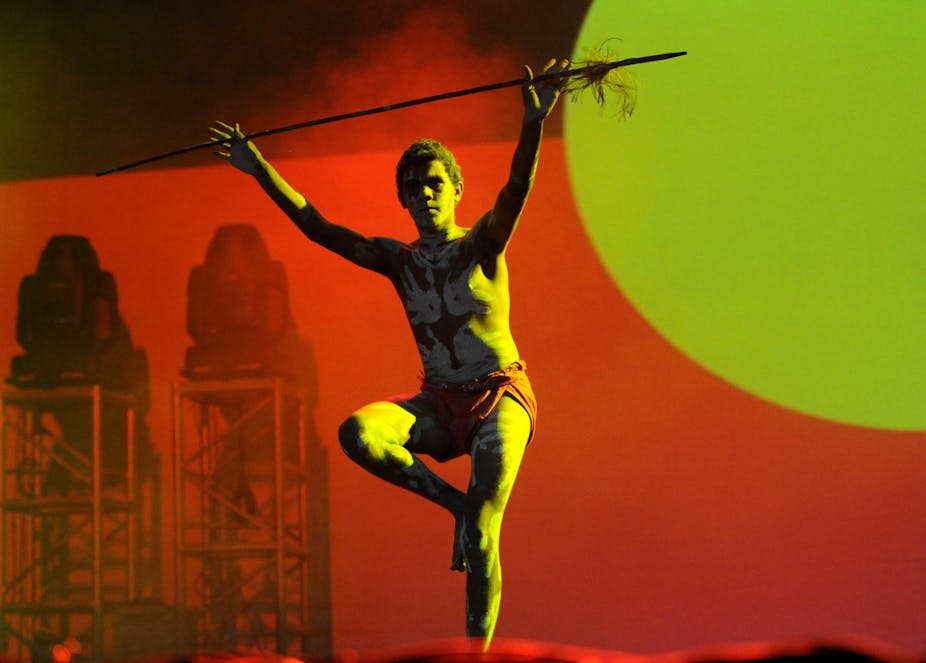The recent decision by Victorian Premier, Ted Baillieu to drop the protocol for government ministers to “acknowledge country” and thereby recognise Indigenous Australian custodianship does not sit well with me at all.
As a Badimaya woman (from the Yamatji people in Western Australia), who is a visitor to the Kulin Nations of Victoria, I found this to be extremely disrespectful – particularly to those Wurundjeri and Boon-wurrung Elders and peoples on whose land Mr Baillieu lives and works.
Indigenous Australian people are the original custodians of the land. It is important this unique position is recognised and incorporated as part of official protocol at all events and gatherings.
It enables the wider community to share in Indigenous Australian culture and heritage, facilitating better relationships between Indigenous people and other Australians.
It also empowers Indigenous Australians who are part of workplaces like the public services by making such practices part of their everyday operations. It is not about being politically correct. It is about showing due respect that for centuries has been ignored.
Indigenous history
When I relocated to Melbourne, Wurundjeri Country, in 2001 to continue my work in higher education, I got to wondering: how in three and a half hours in a plane I had covered the same amount of country that took in some 10 or 12 nations, from Nyungar to Wongi to Nunga and finally to the Kulin Nations, of which the Wurundjeri are a member.
In that plane I had bypassed the ways of the local people and simply flown over top of them. Any protocols that were necessary to being welcomed onto country, offered safe passage and continued journey were invisible and some may say, no longer relevant.
This is what Mr Baillieu’s decision has done – ignored Indigenous protocol, ignored Indigenous presence and dismissed any form of reciprocity that had been formed by the previous government.
Being welcomed onto country has been a fundamental aspect of Indigenous Australian society for thousands of years.
Originally, it was about knowing the tribal boundaries that existed between Indigenous Nations – one couldn’t cross over tribal boundaries with permission – to do so would cause offence to the peoples of the land on which you were “trespassing”.
In some places the repercussions could be very serious. When different language groups made contact it was imperative that respect and acknowledgement of tribal boundaries and complex rituals were observed.
This acknowledgment has been Indigenous protocol for thousands of years and is still observed in Indigenous Australian communities.
Unique position in society
The processes of “welcome to country’ and "acknowledgement of country” recognise the unique position of Indigenous Australian people in Australian culture and history.
“Welcome to country” acknowledges the significant Indigenous nations and recognises the ancestral spirits who created the boundaries and lands, which allows safe passage to visitors.
A welcome should always occur in the opening ceremony, preferably as the first item.
I know that Elders who conduct welcome ceremonies (and whose people are acknowledged in formal events), are very proud of the role they play in this regard. It is quite profound considering the extreme lack of such place Indigenous peoples had in the minds of the colonisers (I’m thinking here of Terra Nullius).
Welcome ceremonies have been commonly used by Indigenous people worldwide for many, many years.
Welcome around the world
I have travelled to countries where I have been welcomed as an Indigenous colleague and couldn’t imagine not acknowledging my Indigenous brothers and sisters in these places. In Norway with the Saami; in Canada with the Lakota; in Aotearoa by the Maori.
I know it made my journey all the more powerful because of this welcome and recognition in return.
It is quite easy to “acknowledge country” as it can be done by any party (Indigenous Australian and non-Indigenous Australian) that is participating in an occasion of any kind. It is a way for the wider community to demonstrate respect for Indigenous Australian cultural values and ways of doing business.
By dismissing this protocol Mr Ballieu also dismisses the place of Indigenous Australian public servants who work in his government departments.
We have worked hard to gain respect and have our place acknowledged and recognised – it wasn’t too much to ask for but, now, it seems it is way too much to expect.

